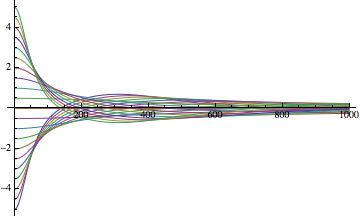I have an ODE equation which is sort of
y''[x] + 2 y'[x]/x + .0001 (y[x])^3 ==0
subject to the boundary conditions
y'[0]==0 and y[Infinity]==0
Can anyone please suggest what would be a reliable process for solving this numerically in Mathematica?
y[Infinity] can obviously be truncated down to , say, y[20].


NDSolvedocs and examples! $\endgroup$y[x] == 0is a solution to your differential equation. $\endgroup$